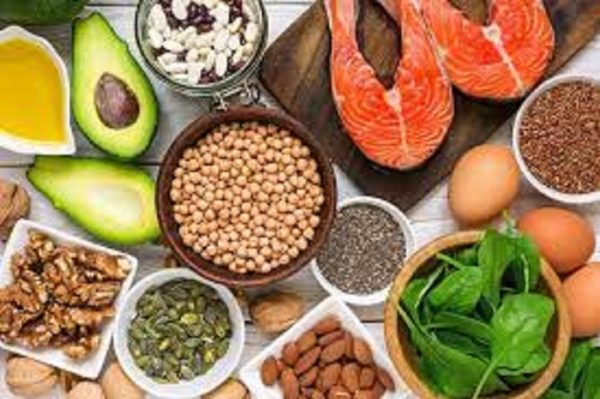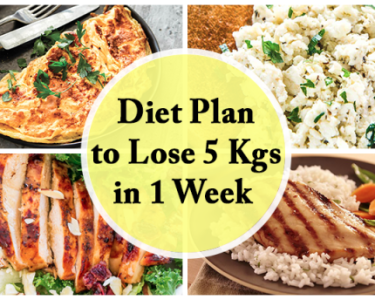Introduction
Maintaining healthy cholesterol levels is crucial for overall well-being and reducing the risk of cardiovascular diseases. Diet plays a significant role in managing cholesterol levels, and with a well-designed diet plan, you can make positive changes to your health. This article explores the relationship between diet and cholesterol, provides tips for designing an effective diet plan, emphasizes the importance of exercise, and offers guidance on monitoring cholesterol levels.
Understanding Cholesterol
What is Cholesterol?
Cholesterol is a waxy substance found in the cells of your body. It plays a vital role in hormone production, digestion, and the formation of cell membranes. However, excessive levels of cholesterol, particularly low-density lipoprotein (LDL) cholesterol, can lead to plaque buildup in arteries, increasing the risk of heart disease.
Good and Bad Cholesterol
There are two types of cholesterol: high-density lipoprotein (HDL) cholesterol, often referred to as “good” cholesterol, and LDL cholesterol, known as “bad” cholesterol. HDL cholesterol helps remove LDL cholesterol from the bloodstream, while LDL cholesterol can contribute to arterial blockages.
The Link Between Diet and Cholesterol
Effects of Diet on Cholesterol
The food we consume has a direct impact on our cholesterol levels. Consuming foods high in saturated fats, trans fats, and dietary cholesterol can raise LDL cholesterol levels. On the other hand, incorporating heart-healthy foods into our diet can help lower LDL cholesterol and increase HDL cholesterol.
Importance of a Healthy Diet
A Healthy Diet for managing cholesterol should focus on consuming nutrient-dense foods. This includes fruits, vegetables, whole grains, lean proteins, and sources of healthy fats like avocados and nuts. Such a diet provides essential vitamins, minerals, and fiber while minimizing unhealthy fats and cholesterol.
Designing a Diet Plan for Cholesterol
Identifying Problematic Foods
To design an effective diet plan, it is crucial to identify foods that contribute to high cholesterol levels. These include saturated fats found in red meat, full-fat dairy products, and processed foods. Trans fats, commonly found in fried and baked goods, should also be limited.
Including Heart-Healthy Foods
Incorporating heart-healthy foods is key to managing cholesterol levels. Foods such as fatty fish rich in omega-3 fatty acids, oatmeal, legumes, and olive oil can help lower LDL cholesterol. Additionally, incorporating soluble fiber from sources like fruits and vegetables aids in reducing cholesterol absorption.
Balancing Macronutrients
A well-balanced diet plan includes adequate amounts of macronutrients. While healthy fats should replace unhealthy fats, carbohydrates from whole grains and proteins from lean sources should be included in appropriate portions. Moderation is crucial to maintaining a healthy balance.
Portion Control
Controlling portion sizes is essential for managing cholesterol and maintaining a healthy weight. Consuming larger portions can lead to excessive calorie intake, which may contribute to weight gain and increased cholesterol levels. Using smaller plates and being mindful of portion sizes can help in this regard.
Incorporating Exercise
Exercise and Cholesterol
Regular physical activity is beneficial for managing cholesterol levels. Exercise helps raise HDL cholesterol levels while lowering LDL cholesterol. It also aids in weight management, reduces blood pressure, and improves overall cardiovascular health.
Recommended Physical Activity
Engaging in aerobic exercises such as brisk walking, jogging, cycling, or swimming for at least 150 minutes per week is recommended. Strength training exercises a few times a week can also help increase muscle mass and enhance metabolism.
Monitoring Cholesterol Levels
Regular Check-ups
Regular check-ups with a healthcare professional are crucial for monitoring cholesterol levels. They can assess your overall health, track any changes, and adjust your diet plan or medications accordingly. It is important to follow their recommendations and attend follow-up appointments.
Tracking Food Intake
Keeping a food diary can help you track your dietary choices and identify areas for improvement. By noting what you eat and drink, you can identify patterns and make necessary adjustments to meet your cholesterol management goals.
Understanding Medications
In some cases, medications may be prescribed to manage cholesterol levels effectively. It is important to understand the purpose and potential side effects of these medications. Consulting with your healthcare provider and adhering to the prescribed regimen is crucial.
Additional Tips and Considerations
Cooking Methods
Opting for healthier cooking methods such as grilling, baking, steaming, or sautéing instead of frying can reduce the intake of unhealthy fats. Using herbs, spices, and other flavor-enhancing ingredients can also make your meals enjoyable without relying on excessive salt or unhealthy sauces.
Alcohol and Cholesterol
While moderate alcohol consumption may have some health benefits, excessive drinking can raise cholesterol levels. It is important to drink in moderation or avoid alcohol altogether if advised by your healthcare provider, especially if you have high cholesterol.
Stress Management
Stress can indirectly affect cholesterol levels. Implementing stress management techniques such as exercise, meditation, adequate sleep, and engaging in hobbies or activities you enjoy can help reduce stress levels and positively impact cholesterol management.
Conclusion
Effectively managing cholesterol levels through diet and lifestyle changes is essential for overall health. By designing a well-balanced diet plan, incorporating exercise, and monitoring cholesterol levels regularly, individuals can take control of their health and reduce the risk of cardiovascular diseases.
FAQs
Can I eat fats while following a cholesterol management diet plan?
Yes, it is important to include healthy fats such as those found in avocados, nuts, and olive oil. These fats can help raise HDL cholesterol levels and provide essential nutrients.
Can exercise alone lower cholesterol levels?
While exercise is beneficial for managing cholesterol levels, a combination of a healthy diet and regular physical activity is most effective in achieving desired outcomes.
How often should I have my cholesterol levels checked?
It is recommended to have your cholesterol levels checked at least once every five years for adults. However, individuals with high cholesterol or a history of cardiovascular disease may require more frequent monitoring.
Can I still enjoy my favorite foods while on a cholesterol management diet plan?
Yes, moderation is key. You can occasionally enjoy your favorite foods, but it is important to balance them with healthier choices and control portion sizes.
Are there any natural supplements that can help lower cholesterol levels?
Some natural supplements, such as plant sterols, red yeast rice, and garlic extract, may have modest effects on cholesterol levels. However, it is important to consult with your healthcare provider before starting any supplements.



